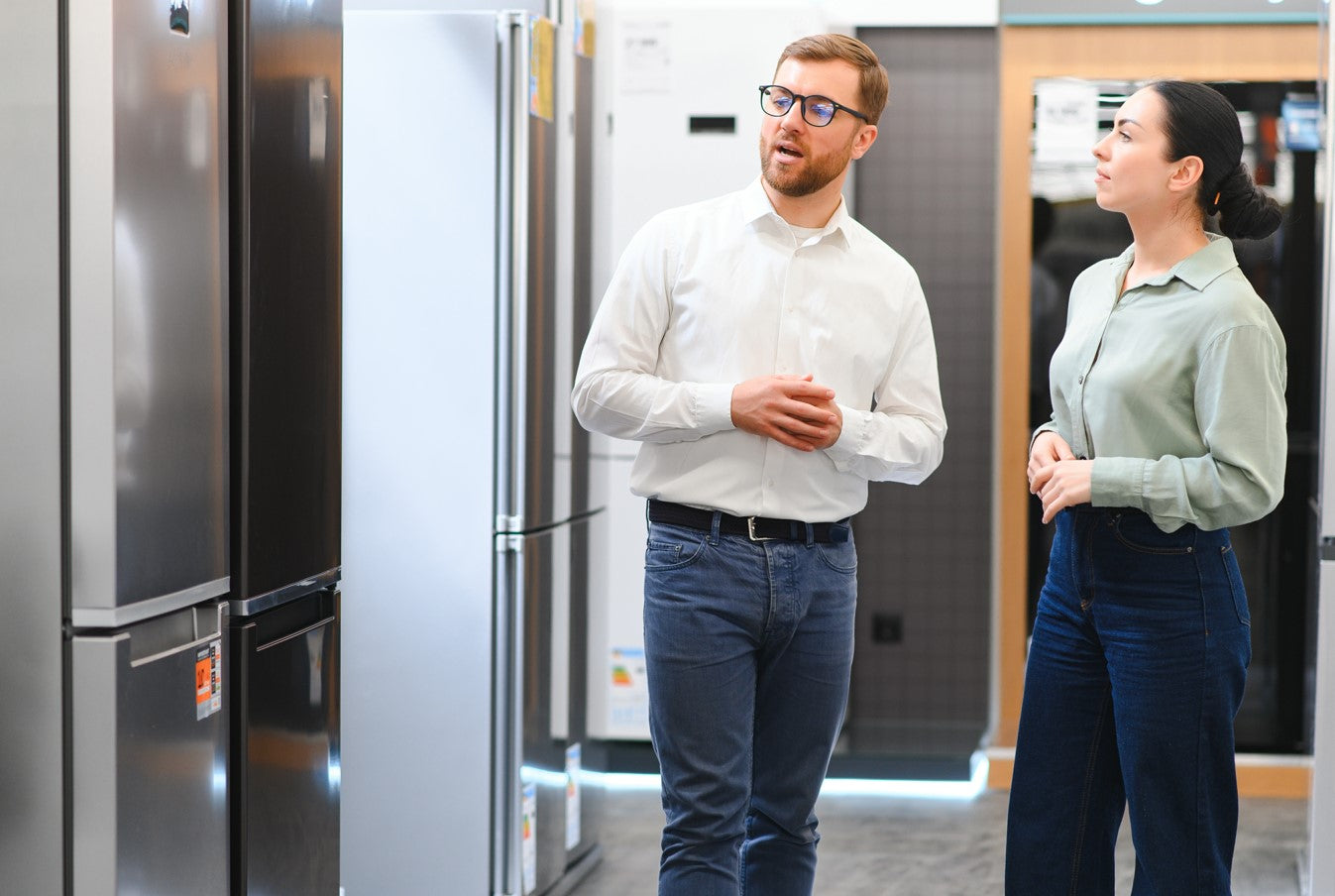
Top Tips for Choosing Energy-Efficient Refrigeration Systems
Choosing the right refrigeration system is crucial for your business, especially if you're looking to save on energy costs and reduce your environmental footprint. Energy-efficient refrigeration systems help you achieve these goals while keeping your products at the correct temperature. Understanding what makes a fridge energy-efficient can guide you in making the best decision for your needs.
We aim to provide you with useful tips on how to choose energy-efficient refrigeration systems. We'll delve into the importance of energy ratings, the key features to seek out, and compare various technologies to ensure you make an informed decision. By the end of this guide, you'll be well-equipped to select a refrigeration system that meets your business needs and promotes energy conservation
Understanding Energy Efficiency Ratings
When choosing a refrigeration system, it's essential to understand energy efficiency ratings. These ratings, often found on labels, give an indication of how much energy a fridge uses. In Australia, the star rating system is commonly used. The more stars a fridge has, the more energy-efficient it is. This makes it easier to compare different models at a glance.
Look for the Energy Rating Label on refrigerators. The label provides an estimate of the annual energy consumption in kilowatt-hours (kWh). Lower numbers mean the fridge uses less power, saving you money over time. Higher-rated appliances often use advanced technologies to reduce energy use, which can also mean less environmental impact. Understanding these ratings can help you select a fridge that balances cost, performance, and energy savings effectively.
Key Features to Look for in Energy-Efficient Fridges
Several features can significantly boost the energy efficiency of refrigeration systems. One important aspect to consider is the type of compressor. Inverter compressors, for example, adjust the cooling intensity based on the internal temperature, using less energy than traditional compressors that work at a constant speed.
Another key feature is the insulation. Well-insulated fridges maintain temperature efficiently, reducing the need for the refrigeration unit to work harder. Look for fridges with thick, high-quality insulation materials. Efficient lighting, such as LED lights, also helps reduce energy usage. LEDs are brighter and use less power compared to traditional bulbs, contributing to overall energy efficiency.
Additionally, features like auto-defrost settings and smart thermostat controls can optimise the fridge’s operation, ensuring it runs efficiently. By focusing on these critical features, you can choose a refrigerator that offers substantial energy savings and reliable performance.
Comparing Different Refrigeration Technologies
When comparing different refrigeration technologies, it’s important to understand the advantages and disadvantages of each type. Traditional compressor-based fridges have been a staple in many businesses for years. They provide reliable cooling but can use a significant amount of energy due to their constant on and off cycles.
Inverter technology is a newer method that optimises energy use. Inverter compressors operate at variable speeds, adjusting the cooling level based on the fridge's needs. This not only reduces energy consumption but also minimises wear and tear on the compressor, extending the lifespan of the appliance. Another technology to consider is absorption refrigeration, which uses a heat source to generate cooling. While less common, this can be more energy-efficient in specific settings.
With advancements in smart technology, some fridges now come with sensors and smart thermostats that further enhance energy efficiency. These smart features allow for better temperature control and maintenance alerts, ensuring your fridge operates at its best with minimal energy use. Comparing these technologies helps you choose the most efficient and suitable refrigeration system for your business.
Long-Term Benefits of Energy-Efficient Refrigeration Systems
Investing in energy-efficient refrigeration systems offers numerous long-term benefits. First and foremost, energy-efficient fridges reduce your power bills. Lower energy consumption means significant cost savings over the appliance's lifetime. These savings can be redirected towards other important aspects of your business, making it a wise financial decision.
Furthermore, using energy-efficient refrigerators helps reduce your carbon footprint. Less energy usage means fewer greenhouse gases are released into the atmosphere, contributing to a healthier environment. This can also enhance your business’s reputation as environmentally conscious, attracting customers who value sustainability.
Long-term reliability is another key benefit. Energy-efficient fridges often have advanced features and technologies that make them more durable and less prone to breakdowns. This means fewer interruptions in your business operations and less money spent on repairs and replacements. By prioritising energy efficiency, you ensure your refrigeration system delivers consistent performance and longevity.
Conclusion
Choosing an energy-efficient refrigeration system is a smart decision for your business. It ensures you save on energy costs, reduce environmental impact, and enjoy reliable performance over time. With a clear understanding of energy efficiency ratings, key features, and different technologies, you can make an informed choice that meets your needs.
At Refrigeration Experts, we are dedicated to helping you find the best refrigeration solutions. Our range of energy-efficient systems ensures you get the best value for your investment. Reach out to our refrigeration experts today to discover our top-notch refrigeration systems that support both your business and the environment.
